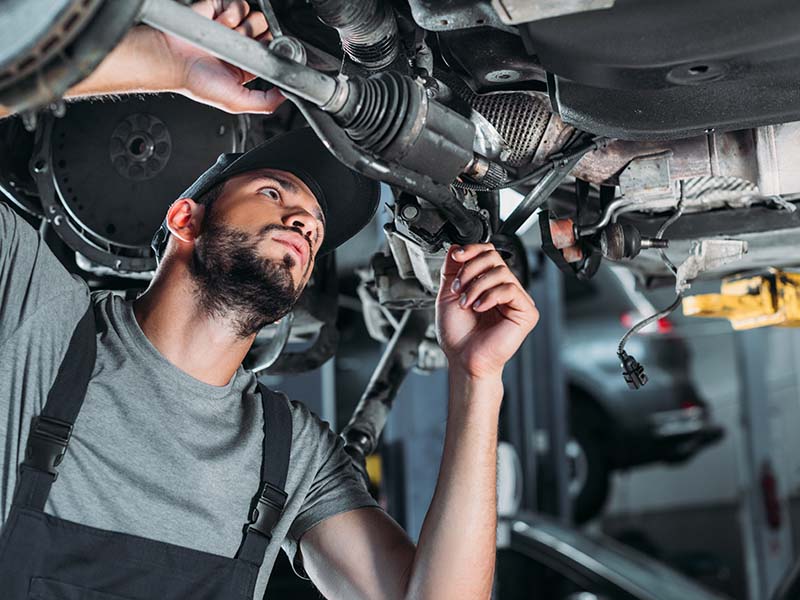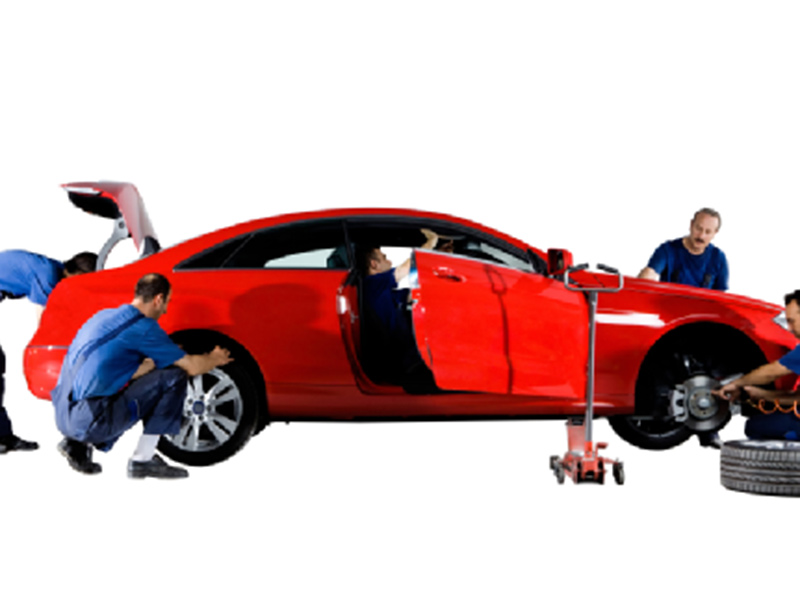All Categories
Featured
Brakes are among the most crucial safety and security elements of any car, guaranteeing you can reduce or quit quickly when required. Over time, brake components can use down, resulting in lowered performance and possibly unsafe driving conditions. Knowing the indications that your automobile needs brake repair is necessary for preserving both safety and the longevity of your auto. In this blog, we'll discuss the usual signs that indicate your brakes require attention and how to deal with the concern immediately.
![]()
How to Resolve It: If you discover squeaking or squealing, have your brake pads checked and replaced if required. Resolving this issue immediately will avoid more damage to other brake elements, such as the blades.
How to Address It: If you listen to grinding noises, stop utilizing the vehicle and have the brakes evaluated right away. It's necessary to change the brake pads asap and examine the rotors for damages.
Exactly How to Resolve It: If your brake pedal shakes, have the rotors checked for bending. In many cases, they can be resurfaced, but if the damage is serious, you might require to replace the blades.
Just How to Address It: If you experience a spongy or soft brake pedal, examine the brake fluid levels. It may need to be topped off if the liquid is reduced. Nonetheless, if the trouble persists, you ought to have the brake system evaluated for leaks or air in the brake lines.
![]()
Exactly How to Resolve It: Pulling away needs immediate attention from a technician. The problem can be brought on by numerous aspects, consisting of a stuck caliper or irregular brake pad wear, all of which require to be identified and repaired by an expert.
How to Address It: If the brake warning light appears, describe your automobile's guidebook to recognize the particular issue. Nonetheless, it's always recommended to take your cars and truck to an auto mechanic to have the brake system inspected and any type of needed fixings made.
![]()
How to Resolve It: Any kind of decrease in stopping efficiency must be resolved promptly. Have your brakes inspected to establish the cause, whether it results from worn pads, liquid troubles, or various other issues within the braking system.
Final thought. Routine brake upkeep and examinations can aid you prevent costly repairs and expand the life expectancy of your braking components. Do not wait for your brakes to fall short-- if you observe any of these indicators, schedule a brake inspection with a relied on auto mechanic right away.
- Squealing or Squealing Sounds. One of the most common indications that your brakes need attention is unusual noises when stopping. A shrill squealing or squealing audio frequently indicates that the brake pads are put on down and require to be replaced.

How to Resolve It: If you discover squeaking or squealing, have your brake pads checked and replaced if required. Resolving this issue immediately will avoid more damage to other brake elements, such as the blades.
- Grinding Noises. It is a more serious worry if you hear a grinding sound when using the brakes. This audio commonly takes place when the brake pads have actually put on down completely and the metal component of the pad is grinding versus the rotor. Grinding can damage the rotor, which is costly to repair or replace.
How to Address It: If you listen to grinding noises, stop utilizing the vehicle and have the brakes evaluated right away. It's necessary to change the brake pads asap and examine the rotors for damages.
- Vibrating Brake Pedal. It can be an indicator that the brake blades are warped if the brake pedal shakes or pulses when you use pressure. Warped blades can cause irregular pressure to be put on the brake pads, leading to a shaky or rough braking experience. This concern can worsen in time, making it harder to quit your car properly.
Exactly How to Resolve It: If your brake pedal shakes, have the rotors checked for bending. In many cases, they can be resurfaced, but if the damage is serious, you might require to replace the blades.
- Squishy or soft Brake Pedal. It should really feel receptive and solid when you press the brake pedal. If the pedal feels soft, spongy, or sinks to the floor, it's an indicator that there might be a problem with the brake liquid or the brake system itself. This can be triggered by reduced brake fluid levels, air in the brake lines, or a brake liquid leakage.
Just How to Address It: If you experience a spongy or soft brake pedal, examine the brake fluid levels. It may need to be topped off if the liquid is reduced. Nonetheless, if the trouble persists, you ought to have the brake system evaluated for leaks or air in the brake lines.
- Pulling to One Side. If your car pulls to one side when you use the brakes, it might indicate that one of the brake calipers is not working appropriately, or there might be an issue with the brake pads, blades, or suspension. Irregular stopping can make quiting a lot more difficult and potentially dangerous.

Exactly How to Resolve It: Pulling away needs immediate attention from a technician. The problem can be brought on by numerous aspects, consisting of a stuck caliper or irregular brake pad wear, all of which require to be identified and repaired by an expert.
- Dashboard Caution Lights. When there's a problem with the braking system, numerous lorries are furnished with a dashboard warning light that will certainly light up. This light might suggest low brake fluid, a concern with the anti-lock stopping system (ABS), or various other braking-related concerns that require focus.
How to Address It: If the brake warning light appears, describe your automobile's guidebook to recognize the particular issue. Nonetheless, it's always recommended to take your cars and truck to an auto mechanic to have the brake system inspected and any type of needed fixings made.

- Decreased Braking Efficiency. If you observe that your car takes longer to quit or if the brakes feel less receptive than usual, it's an indicator that your brake system is not performing at its best. This might be because of worn-out brake pads, harmed rotors, or issues with the brake liquid.
How to Resolve It: Any kind of decrease in stopping efficiency must be resolved promptly. Have your brakes inspected to establish the cause, whether it results from worn pads, liquid troubles, or various other issues within the braking system.
Final thought. Routine brake upkeep and examinations can aid you prevent costly repairs and expand the life expectancy of your braking components. Do not wait for your brakes to fall short-- if you observe any of these indicators, schedule a brake inspection with a relied on auto mechanic right away.
Latest Posts
Can Custom-made Fences Include Gates and Entryways?
Published Dec 22, 24
0 min read
The Smart Way to Refinance Your Home Loan with WyHy
Published Dec 22, 24
1 min read
Indicators Your Automobile Requirements Brake Repair Work and Exactly How to Address It
Published Dec 22, 24
0 min read
More
Latest Posts
Can Custom-made Fences Include Gates and Entryways?
Published Dec 22, 24
0 min read
The Smart Way to Refinance Your Home Loan with WyHy
Published Dec 22, 24
1 min read
Indicators Your Automobile Requirements Brake Repair Work and Exactly How to Address It
Published Dec 22, 24
0 min read